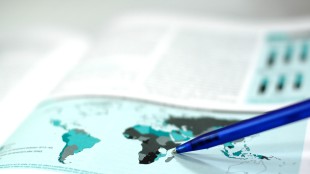
-
 Trump's Christmas gospel: bombs, blessings and blame
Trump's Christmas gospel: bombs, blessings and blame
-
Russia lashes out at Zelensky ahead of new Trump meeting on Ukraine plan

-
 Salah helps Egypt beat South Africa and book last-16 place
Salah helps Egypt beat South Africa and book last-16 place
-
Australia's Ikitau facing lengthy lay-off after shoulder injury

-
 Another 1,100 refugees cross into Mauritania from Mali: UN
Another 1,100 refugees cross into Mauritania from Mali: UN
-
Guardiola proud of Man City players' response to weighty issues

-
 Deadly blast hits mosque in Alawite area of Syria's Homs
Deadly blast hits mosque in Alawite area of Syria's Homs
-
The Jukebox Man on song as Redknapp records 'dream' King George win

-
 Liverpool boss Slot says Ekitike reaping rewards for greater physicality
Liverpool boss Slot says Ekitike reaping rewards for greater physicality
-
Judge jails ex-Malaysian PM Najib for 15 more years after new graft conviction

-
 Musona rescues Zimbabwe in AFCON draw with Angola
Musona rescues Zimbabwe in AFCON draw with Angola
-
Zelensky to meet Trump in Florida on Sunday

-
 'Personality' the key for Celtic boss Nancy when it comes to new signings
'Personality' the key for Celtic boss Nancy when it comes to new signings
-
Arteta eager to avoid repeat of Rice red card against Brighton

-
 Nigeria signals more strikes likely in 'joint' US operations
Nigeria signals more strikes likely in 'joint' US operations
-
Malaysia's former PM Najib convicted in 1MDB graft trial

-
 Elusive wild cat feared extinct rediscovered in Thailand
Elusive wild cat feared extinct rediscovered in Thailand
-
Japan govt approves record budget, including for defence

-
 Seoul to ease access to North Korean newspaper
Seoul to ease access to North Korean newspaper
-
History-maker Tongue wants more of the same from England attack

-
 Australia lead England by 46 after 20 wickets fall on crazy day at MCG
Australia lead England by 46 after 20 wickets fall on crazy day at MCG
-
Asia markets edge up as precious metals surge

-
 Twenty wickets fall on day one as Australia gain edge in 4th Ashes Test
Twenty wickets fall on day one as Australia gain edge in 4th Ashes Test
-
'No winner': Kosovo snap poll unlikely to end damaging deadlock

-
 Culture being strangled by Kosovo's political crisis
Culture being strangled by Kosovo's political crisis
-
Main contenders in Kosovo's snap election

-
 Australia all out for 152 as England take charge of 4th Ashes Test
Australia all out for 152 as England take charge of 4th Ashes Test
-
Boys recount 'torment' at hands of armed rebels in DR Congo

-
 Inside Chernobyl, Ukraine scrambles to repair radiation shield
Inside Chernobyl, Ukraine scrambles to repair radiation shield
-
Bondi victims honoured as Sydney-Hobart race sets sail

-
 North Korea's Kim orders factories to make more missiles in 2026
North Korea's Kim orders factories to make more missiles in 2026
-
Palladino's Atalanta on the up as Serie A leaders Inter visit

-
 Hooked on the claw: how crane games conquered Japan's arcades
Hooked on the claw: how crane games conquered Japan's arcades
-
Shanghai's elderly waltz back to the past at lunchtime dance halls

-
 Japan govt approves record 122 trillion yen budget
Japan govt approves record 122 trillion yen budget
-
US launches Christmas Day strikes on IS targets in Nigeria

-
 Australia reeling on 72-4 at lunch as England strike in 4th Ashes Test
Australia reeling on 72-4 at lunch as England strike in 4th Ashes Test
-
Too hot to handle? Searing heat looming over 2026 World Cup

-
 Packers clinch NFL playoff spot as Lions lose to Vikings
Packers clinch NFL playoff spot as Lions lose to Vikings
-
Guinea's presidential candidates hold final rallies before Sunday's vote

-
 President Trump's Executive Marijuana Action Exposes the Truth-How the DEA Delayed Medicine While Protecting Everything Else
President Trump's Executive Marijuana Action Exposes the Truth-How the DEA Delayed Medicine While Protecting Everything Else
-
Calvin B. Taylor Bankshares, Inc. Reports Third Quarter Financial Results and Announces New Stock Repurchase Program

-
 Processa Pharmaceuticals and 60 Degrees Pharmaceuticals Interviews to Air on the RedChip Small Stocks, Big Money(TM) Show on Bloomberg TV
Processa Pharmaceuticals and 60 Degrees Pharmaceuticals Interviews to Air on the RedChip Small Stocks, Big Money(TM) Show on Bloomberg TV
-
Aptevo Therapeutics Announces 1-for-18 Reverse Stock Split

-
 Loar Holdings Inc. Announced The Completion of its Acquisition of LMB Fans & Motors
Loar Holdings Inc. Announced The Completion of its Acquisition of LMB Fans & Motors
-
IRS Can Freeze Installment Agreements After Missed Filings - Clear Start Tax Explains Why Compliance Comes First

-
 How the Terms of SMX's $111 Million Capital Facility Shape the Valuation Discussion
How the Terms of SMX's $111 Million Capital Facility Shape the Valuation Discussion
-
A Christmas Message to the DEA's Diversion Anti Marijuana Cabal

-
 QAT Community Sets QuantumTrade 5.0 for Public Beta Testing in March 2026
QAT Community Sets QuantumTrade 5.0 for Public Beta Testing in March 2026
-
BondwithPet Expands B2B Offering with Custom Pet Memorial Product


What we know about how 'forever chemicals' affect health
Invisible, omnipresent "forever chemicals" have been linked to a wide range of serious effects on human health, prompting growing calls for them to be banned.
While there is firm evidence that at least one of the more than 4,000 human-made chemicals called PFAS causes cancer, researchers are still attempting to fully understand their broader impact on health.
Here is what we know so far.
- What are PFAS? -
Per- and polyfluoroalkyl substances (PFAS) are synthetic chemicals that were first developed in the 1940s to withstand intense heat and repel water and grease.
They have since been used in a vast range of household and industrial products including food packaging, make-up, stain-proof fabric, non-stick pots and pans and foam used to fight fires.
Because PFAS take an extremely long time to break down -- earning them the nickname "forever chemicals" -- over the years they have seeped into the soil and groundwater, getting into our food chain and drinking water in the process.
These chemicals have now been detected virtually everywhere on Earth, from the top of Mount Everest to inside human blood and brains.
- Two biggest culprits -
The two most researched PFAS compounds have already been banned or restricted in many countries, though they remain detectable throughout the environment.
Perfluorooctanoic acid (PFOA), which was once used to make the non-stick cookware coating Teflon, was in December classified as "carcinogenic to humans" by the International Agency for Research on Cancer (IARC).
The World Health Organization agency said there is "sufficient evidence" that PFOA gave animals cancer during experiments, as well as "limited evidence" of renal cell and testicular cancer in humans.
Perfluorooctane sulfonic acid (PFOS) -- once the key ingredient in the Scotchgard fabric protector -- was meanwhile ruled "possibly carcinogenic to humans".
There was limited proof of cancer in animals but "inadequate evidence regarding cancer in humans", the IARC said.
- Other linked diseases -
More broadly, observational studies have suggested that exposure to PFAS chemicals is associated with an increased rate of cancer, obesity, thyroid, liver and kidney disease, higher cholesterol, low birth weight, infertility and even a lower response to vaccines.
But such observational research cannot prove that the chemicals directly cause these health problems.
And the level of risk can vary greatly depending on the level of PFAS people are exposed to -- almost everyone on Earth is believed to have at least a little PFAS in their bodies.
According to the IARC, most at risk for serious PFAS exposure are people who directly work with the chemicals while making products.
- Question of exposure -
Exactly what level of PFAS exposure is hazardous to health has been a matter of debate.
Previously, guidelines in numerous countries ruled that having less than 100 nanogrammes of PFAS per litre of tap water was enough to protect health.
But the United States has proposed lowering the limit to four nanogrammes of PFOA and PFOS per litre -- and the EU is considering following suit.
Last year, a media investigation found PFAS levels over 100 nanogrammes per litre at 2,100 sites across Europe and the UK.
The level soared over 10,000 nanogrammes at 300 of the sites, according to the investigation carried out by 16 newsrooms.
- 'Chemical whack-a-mole' -
Further complicating the ability of research to comprehend the health effects of PFAS is that new compounds are still being developed.
As manufacturers phase out compounds identified as potentially hazardous, they sometimes simply replace it with another member of the PFAS family that has been studied less, researchers have warned.
Harvard environmental researcher Elsie Sunderland has called this process "chemical whack-a-mole".
- Calls for action -
Environmentalists and health experts across the world have been increasingly sounding the alarm about forever chemicals.
On Thursday, French MP Nicolas Thierry will introduce a bill that -- if passed -- would ban non-essential PFAS in France from 2025.
The European Union is also considering a Europe-wide ban on PFAS from as early as 2026.
- What can you do? -
For people at home, it is nearly impossible to avoid consuming miniscule amounts of PFAS.
But experts recommend reducing contact with non-stick cookware and grease-proof food packaging such as fast food wrappers.
Drinking filtered or bottled water and storing leftovers in glass -- not plastic -- containers could also help.
S.Gregor--AMWN



